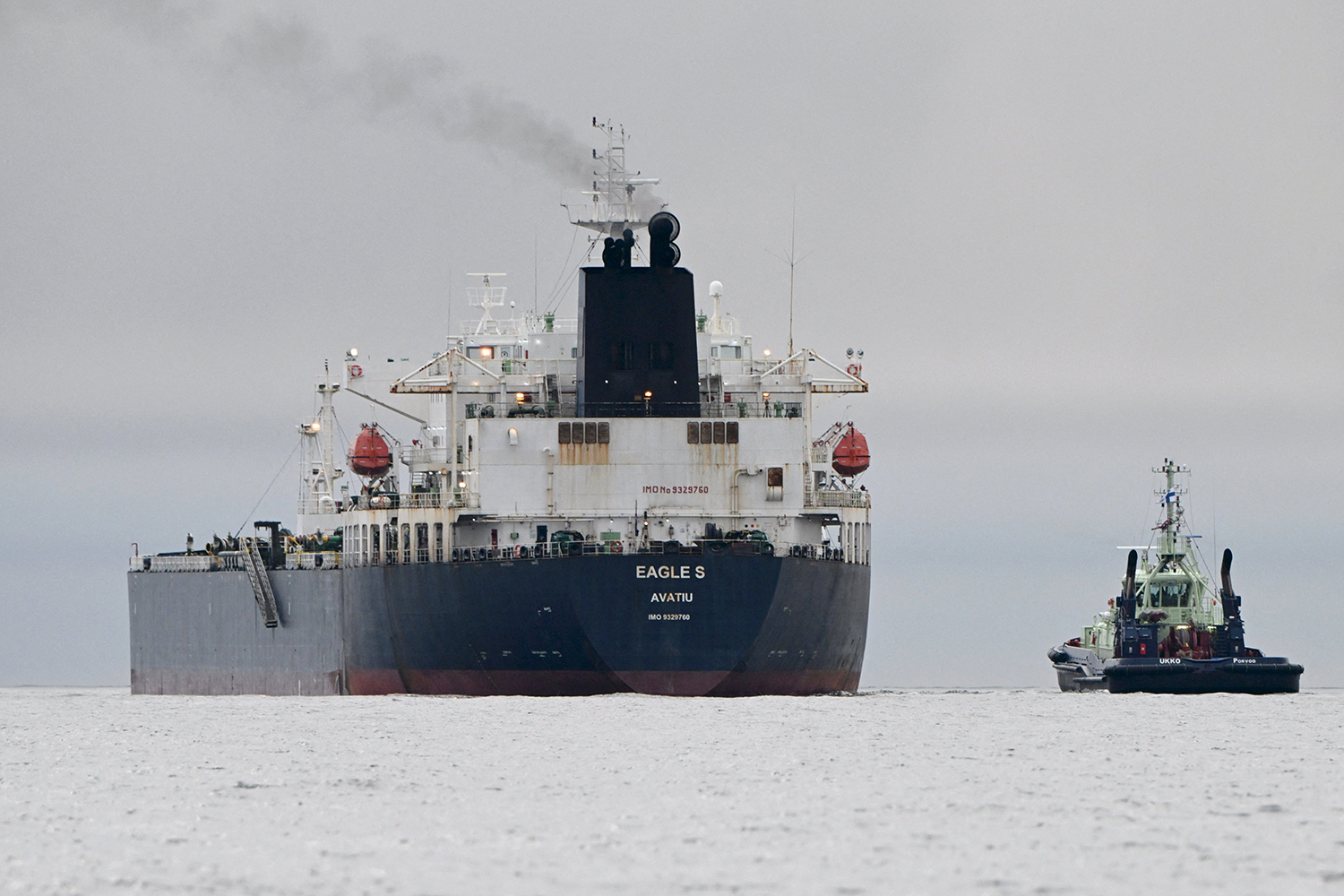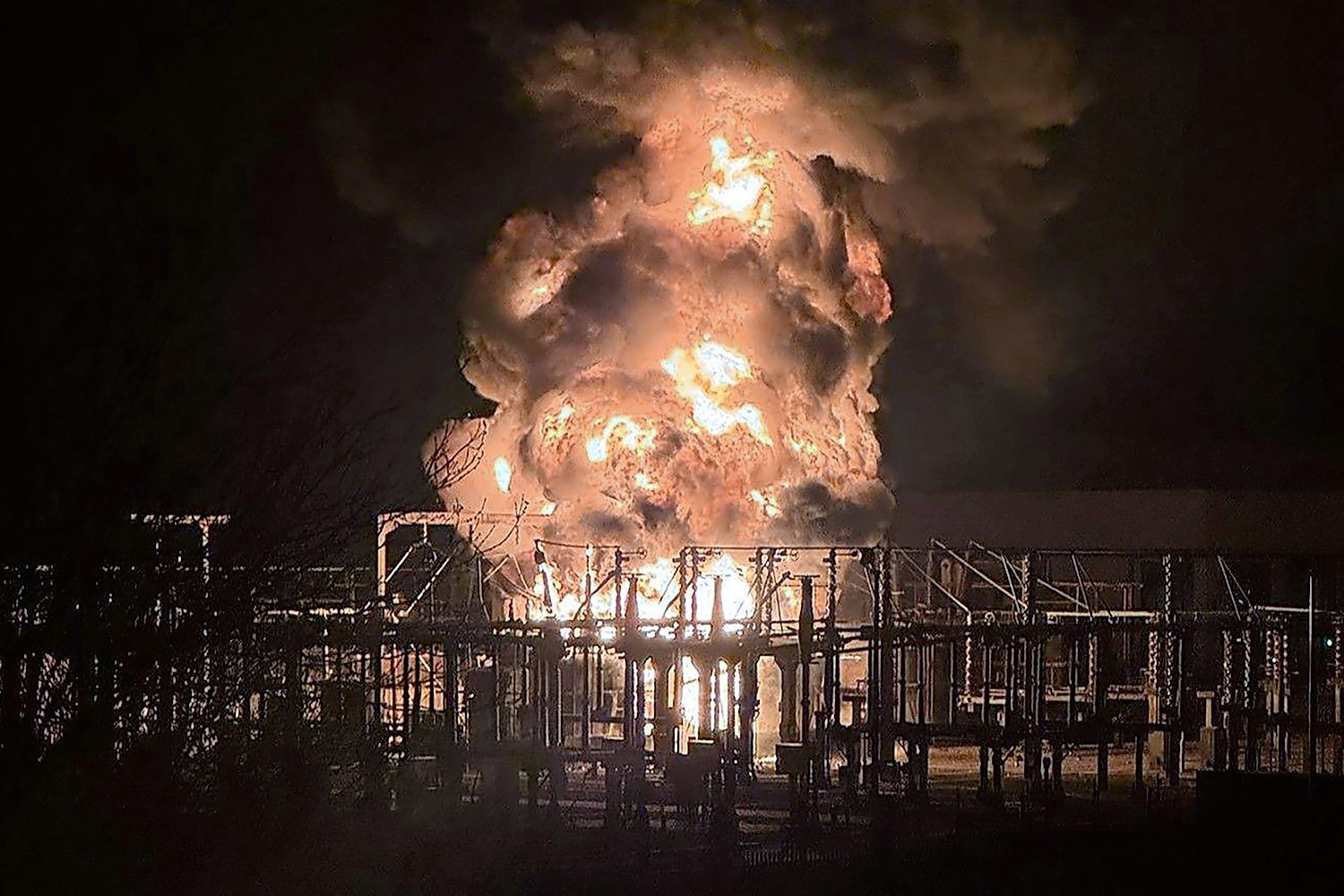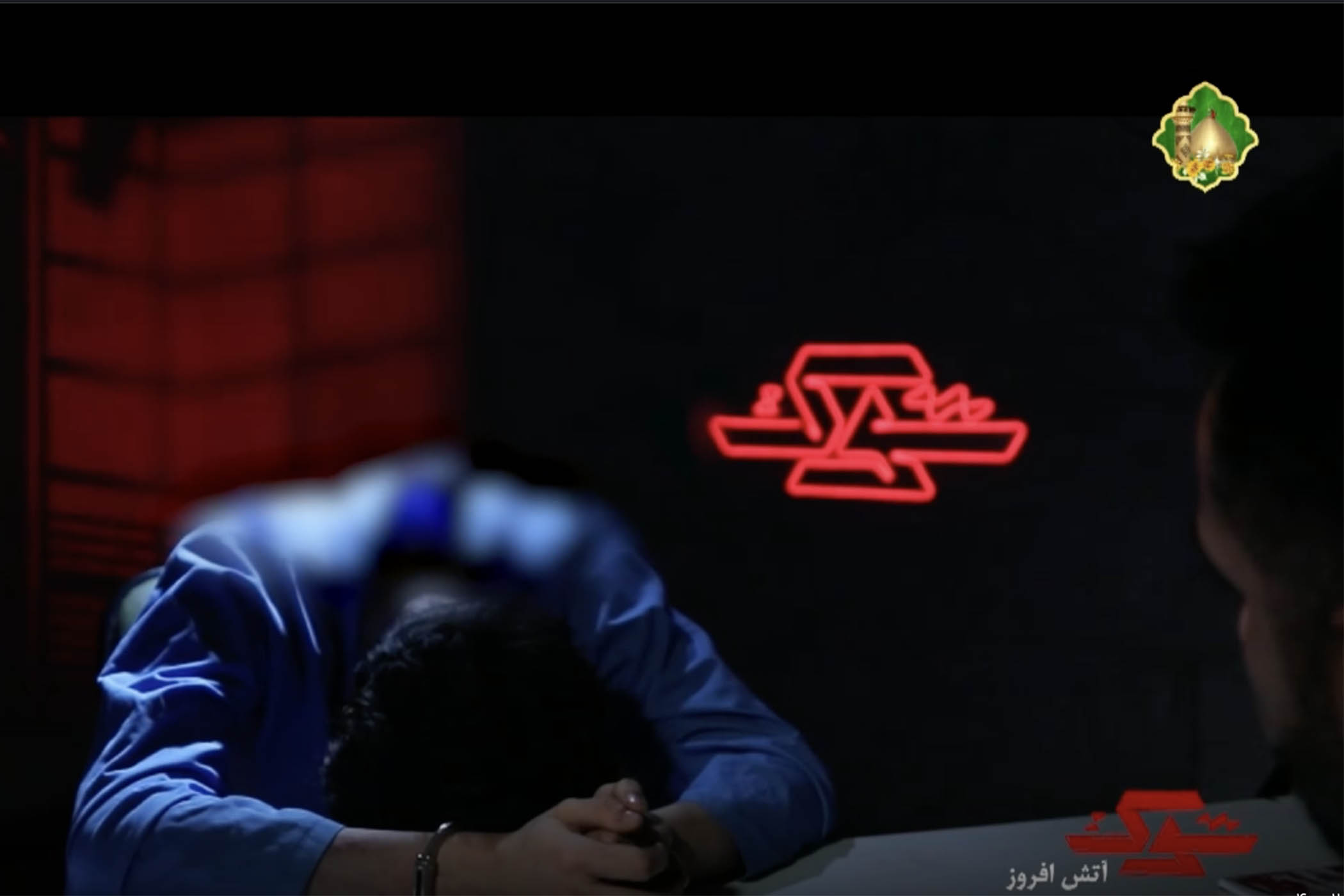On the morning in March after a huge substation fire shut down Europe’s busiest airport, Russia’s former president posted a message to his 1.4 million followers on X. “I’m looking forward to Russia being blamed for the Heathrow fire,” he wrote. “What are you waiting for, Starmer?”
Dmitry Medvedev’s sarcasm was apposite. In the hours after the fire, social media was flooded with speculation that Moscow was responsible. A Daily Telegraph headline wondered: “If Russia was behind Heathrow fire, is that an act of war?”
In the event, investigators would conclude that the incident, which closed Heathrow for 24 hours and disrupted more than 1,300 flights, was “non-suspicious”.
Last week, fingers were pointed at Russia again after an electricity blackout in Spain and Portugal plunged more than 55 million people into darkness. But as with Heathrow, Spain’s grid operator has, so far, said that a cyber-attack is unlikely.
Europeans are now so spooked by Vladimir Putin, they see him everywhere, while blaming Russia any time something fails or blows up. That, in itself, is a victory for the country’s campaign against the west, experts say.
Europeans are now so spooked by Vladimir Putin, they see him everywhere, while blaming Russia any time something fails or blows up.
Europeans are now so spooked by Vladimir Putin, they see him everywhere, while blaming Russia any time something fails or blows up.
“The beauty of the Russian strategy is that the very possibility the Russians are involved already serves their objective,” said Andrei Soldatov, a Russian security services expert.
“It raises the costs of risk and security assessments, and so raises the cost of providing military and political support to Ukraine.”
Even ignoring the threat from Moscow, British energy officials shudder at the thought of how the UK’s creaking infrastructure may cope with a similar breakdown to Spain and Portugal’s.
Related articles:
Extreme weather events caused by the climate crisis are already causing electricity networks to falter and trains to derail more frequently, while coastal infrastructure is at risk from increased flooding.
A shift towards electric cars and renewable energy has placed more pressure on electricity networks, increasing their risk of collapse. In other cases, poor planning has allowed critical facilities – such as Heathrow – to be exposed to “single points of failure”.
Newsletters
Choose the newsletters you want to receive
View more
For information about how The Observer protects your data, read our Privacy Policy
“We’ve got a much more intermittent electricity system – lots of renewables that work when the sun shines and the wind blows – and at the same time an economy which is digitalising,” said Dieter Helm, a professor of economic policy at Oxford University, on his podcast Helm Talks last month.
“Just in time and just enough has replaced ready, prepared, secure and resilient. In most of these cases, what you discover is, it’s a miracle these things don’t happen more often.”
Officials are increasingly concerned about “grey zone” activity: “sub-threshold action” below the level of an act of war that includes drone surveillance, sabotage and hits on undersea cables.
This week – against a backdrop of VE Day celebrations – the impact of Putin on the collective psyche of the UK authorities will become evident in a series of events. It is understood the prime minister and the defence secretary, John Healey, will speak at the London Defence Conference.
On Friday, the UK will host a meeting of the Joint Expeditionary Force – a security focused coalition of 10 northern European countries that also includes Nordic and Baltic states.
On the same day, a tightly guarded report into the Heathrow fire by the National Energy System Operator will be published. The airport is expected to be blamed for an overreliance on a single substation, while the National Grid and Ofgem, which are supposed to finance repairs and maintenance, will be criticised.
“It feels you have too many bodies and no one is directly responsible,” one energy expert said.
Security analysts have spoken of the danger of playing into Putin’s hands by blaming any adverse event on Russia, when in many cases the causes are more mundane. But even senior officials are sceptical when neighbouring countries find no evidence of sabotage. One asked: “If there was a big outage caused by Russia, would the Spanish and Portuguese want us to know that?”
As the global outlook continues to darken, even accidental outages can reveal weak points to Russia and other adversaries.
“Russians are in a constant search for weaknesses,” said Oleksandr V Danylyuk, a former Ukrainian defence and foreign intelligence official.
The Observer understands that Britain’s strategic defence review, launched soon after last July’s general election and due to report back in the next fortnight, will acknowledge the grey zone issues, including security threats to critical infrastructure. There will be a particular focus on recommendations to strengthen our resilience against potential sabotage from hostile states.
Russian experts said they were not surprised that people are so quick to suspect Putin. “If people think Russia had some involvement [in the Heathrow fire], it’s because Russia has carried out so many sabotage operations in the past,” Soldatov said. “They’re really ramping things up.”
One of the suspicious incidents occurred on a hot July morning last year in Minworth, a village on the outskirts of Birmingham, where a DHL operator at a warehouse was driving a forklift laden with packages. Suddenly, one of them ignited. At first, the blaze seemed contained, but a CCTV image shows how the forklift and the crate it was carrying were quickly engulfed in flames.

In the same month, another package blew up at a DHL warehouse in Leipzig, Germany. Two more devices were found in Poland.
These were no accidents. The devices were electric massagers that had been filled with a magnesium-based flammable substance. Magnesium-based fires are hard to put out, especially onboard a plane.
The packages were due to be flown to customers in the US, Canada and beyond. It was only thanks to luck that the devices avoided being loaded on to an aircraft used by DHL.
UK investigators, as well as their European counterparts in Germany, Poland and Lithuania, strongly suspect that Russia was behind the attacks. In January, the Polish prime minister, Donald Tusk, accused Russia of “planning acts of terrorism in the air not only against Poland, but against airlines all over the world”.
Russia has denied responsibility. But the fires seem to fit a pattern of sabotage and violence that the country is suspected of perpetrating across Europe, with critical infrastructure a particular target.
In March, three Bulgarian spies were found guilty in the UK of spying on “prominent individuals and locations”. In Poland, a 16-man spying network was convicted of installing secret cameras to film transport infrastructure. Other operations have included a plot to set fire to military bases in Germany and attempts to jam GPS in aviation systems.
Most of these missions are thought to have been carried out by the GRU, Russia’s military intelligence agency. Last month, the Czech Republic’s transport minister said the agency had made “thousands” of attempts to interfere with European rail networks. In Sweden, security services are investigating a series of recent railway derailments. In Estonia, an attack in February on cars belonging to the interior minister and to two journalists was carried out by Russian intelligence operatives, the country’s security service has said. France’s ministry of defence also warned this year of possible sabotage attacks by Russia on military sites
“The GRU in particular is on a sustained mission to generate mayhem on British and European streets,” said Ken McCallum, the director of MI5, in a speech three months after the DHL explosions. “We've seen arson, sabotage and more. Dangerous actions conducted with increasing recklessness.”
Unlike the 2018 UK attack in Salisbury on former Russian spy Sergei Skripal, which was carried out by active GRU members, many of today’s sabotage operations are undertaken by non professionals, petty criminals or drug users signed up by Russian agents via WhatsApp and Telegram channels. In some cases, the saboteurs are not even aware of being paid by Moscow.
“This is a completely new playbook,” Soldatov said. “Many of the saboteurs don’t have diplomatic cover, many may not even be Russians. They don’t care about being exposed. It’s a new mentality and very difficult to deal with.”
Overall, The Observer has calculated that about 100 people have been arrested across Europe in the last two years on suspicion of working for Russia or Russian intelligence. Only a handful appear to be Russia-born.
The GRU’s reliance on cheaply sourced saboteurs rather than home grown, professionally trained spies, means many of its operations are low-key: setting fire to cars belonging to journalists, for instance, or throwing molotov cocktails into pro-Ukranian buildings.
Some attacks, however, such as the DHL fires, are more serious. Last July, it was revealed that US intelligence had help foil an alleged plot to assassinate Armin Papperger, the chief executive of a large German arms company supplying Ukraine.
Security experts are particularly worried about Russian threats to undersea cables, which carry about 98% of the world’s internet traffic.
Medvedev, the same Russian statesman who made a joke on X about Heathrow, has openly threatened to attack subsea cables of nations that support Ukraine. In the Baltic sea, authorities are investigating whether a Russia-linked vessel called Eagle S damaged an electric cable by dragging its anchor for 60 miles (100km) along the seabed.
‘The GRU in particular is on a sustained mission to generate mayhem on British and European streets’
‘The GRU in particular is on a sustained mission to generate mayhem on British and European streets’
Ken McCallum, MI5 director
“These incidents – it’s not about the damage they can do,” Danylyuk said. “It’s about preparation, training. They’re checking what can be done, they understand the weaknesses, developing capabilities for the future.
“Russia sees this crisis in Ukraine not as a problem but as an opportunity to weaken the west, to show that it is not actually able to win; that if you want to survive, you need to make a deal.” Each time a Russian-sponsored sabotage incident occurs and the west does not retaliate, Russia wins, he added.
Danylyuk said: “The general strategy is to show Nato is a paper tiger and that westerners are pussies. It’s not enough to say we need to improve our resilience – of our systems, of our critical infrastructure.
“There’s no way you can win any war in defence. There should be a sophisticated counter-strategy which is focused on damaging Russian strategic interests. The strategy should be to force Russians to behave.” Some European countries have started to act. Norway, Denmark and the Netherlands have boosted security around energy infrastructure; France, Italy and the UK have put more money into protecting underwater cables; and the Czech Republic has published a national strategy specifically dedicated to countering hybrid threats, according to an EU policy brief.
In Britain, government-issued guidance now advises residents to buy three days’ worth’ supplies of tinned food and water to safeguard against floods, power outages or a biosecurity crisis. And the UK public is increasingly paying attention: visits to the official Prepare website have jumped 345% this last week.
Edward Arnold, a senior research fellow at the Royal United Services Institute (Rusi), said the government was often hampered by a “failure of imagination” and needed to be more proactive in predicting and countering threats.
“Issues such as the undersea cables were identified at least eight years ago in the UK,” he said. “But we didn’t actually really do anything [until] two years ago.” Arnold added that the greatest threat would be a series of attacks that happened either simultaneously or in quick succession.
“If it’s just one issue, then it’s much easier. But continuous issues make it really, really difficult. That’s where we have probably underexplored. Any [attack] against energy, infrastructure would very quickly swamp the government’s ability to respond.”
Danylyuk, a Rusi associate fellow, believes Russian-sponsored violence will now ramp up. “I think we will see pretty soon a growing number of terrorist attacks in Europe,” he said. “It’s just a matter of time.”





